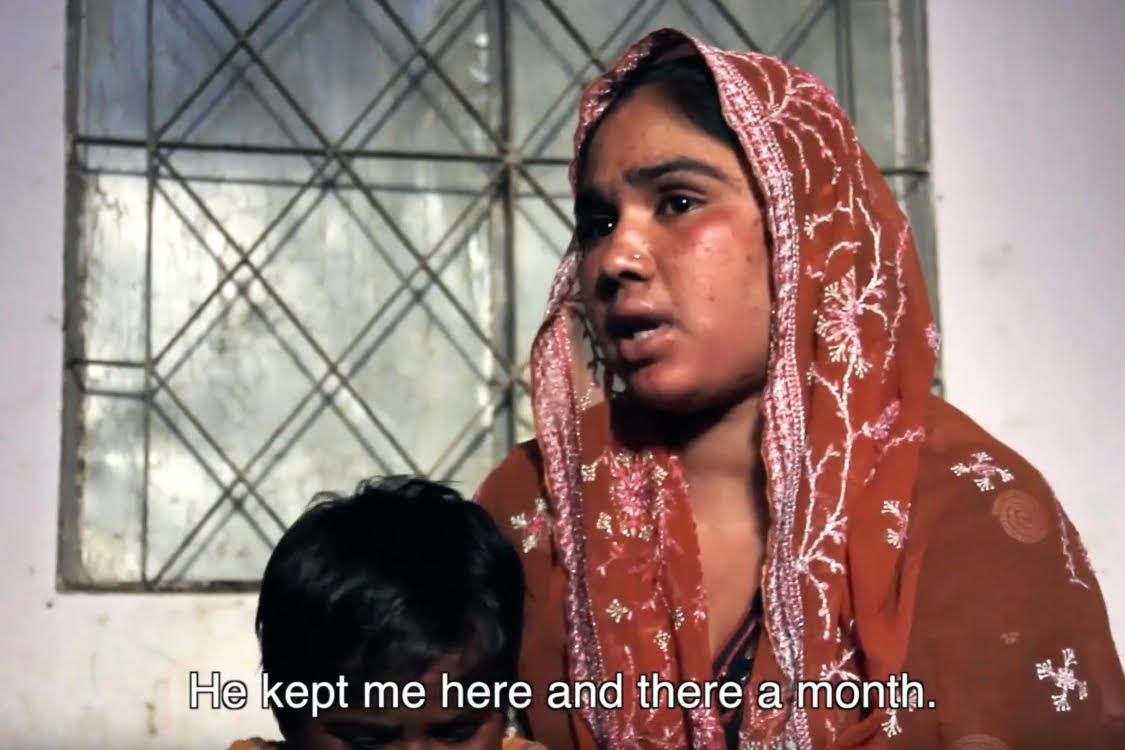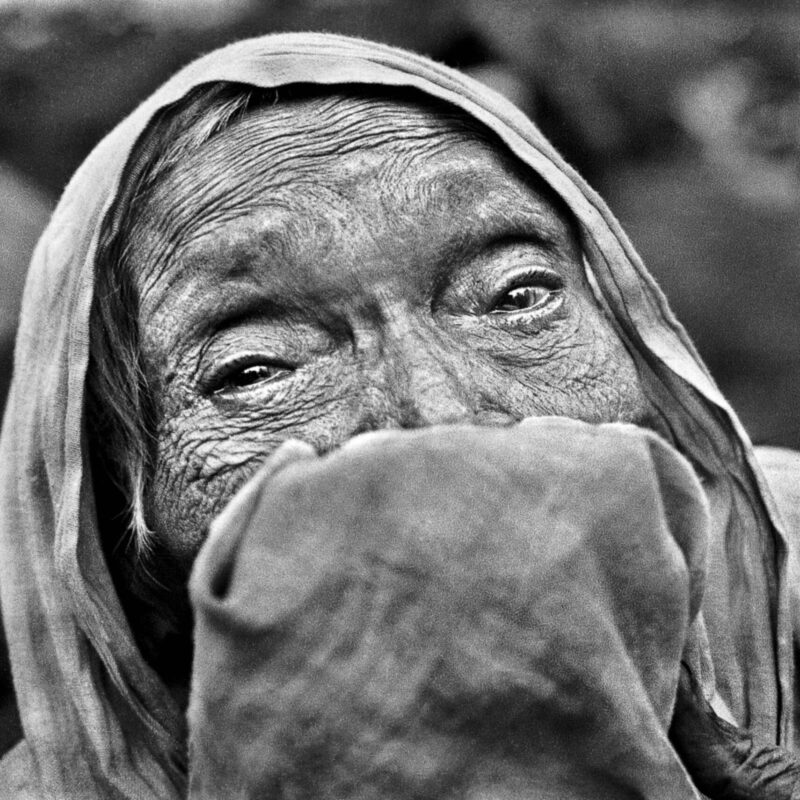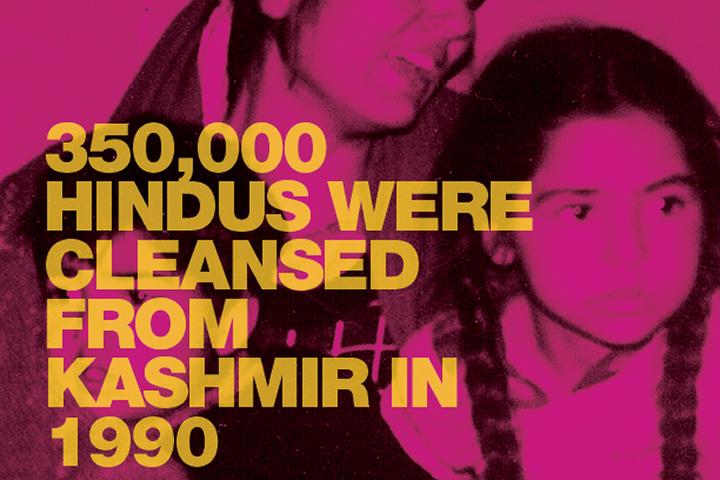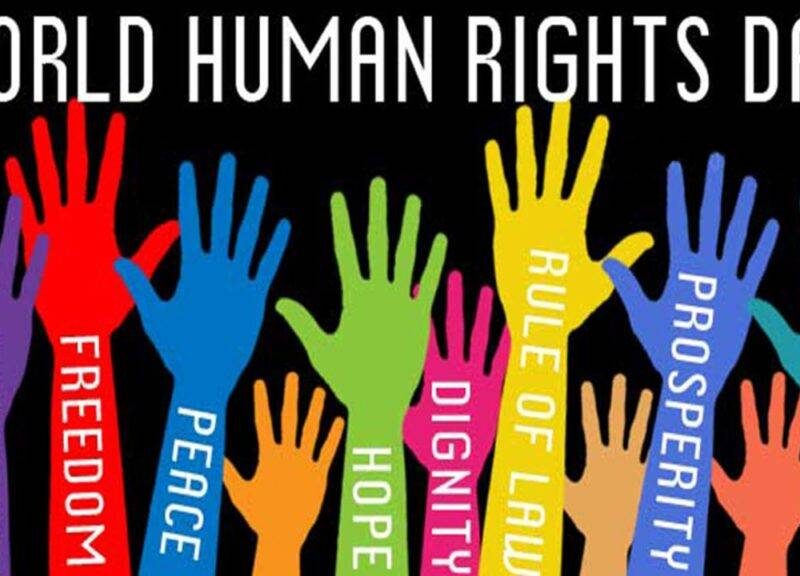

A girl from the documentary film, Thrust into Heaven, showcasing the forced conversions of Hindu girls in Pakistan
Ravita, Harya, and Jeevti.
What do these three girls have in common?
They’re all young Hindu victims of an alarming trend of abductions, forced conversions, and forced marriages that have quietly been plaguing Pakistan’s minority communities for several years now.
Earlier this month, 16 year-old Ravita Meghwar was kidnapped from her village in Sindh province and taken to an Islamic Center, where she was converted and married to a man named Syed Nawaz Ali Shah, from the powerful Syed clan. The religious cleric at the Center issued a certificate falsely claiming that Ravita, who belongs to the minority Hindu community, was 18 and had converted to Islam out of her own free will.
Under the Sindh Child Marriages Restraint Act, 2013, a girl must attain the age of 18 before she can marry, though Islamic law in Pakistan allows girls to marry at the age 16 or once she reaches puberty, whichever comes first.
Ravita’s father, Satram Das Meghwar, filed a case with the police and petitioned the Sindh High court. But acting under reported coercion by Syed Nawaz Ali Shah and his co-conspirators, Ravita told the judge that she wanted to live with her “husband” and that she had freely converted and married him. Her statement was not surprising, however, given that in most instances vulnerable girls like Ravita are threatened into silence or pressured to testify in favor of their abductors out of fear for the safety of their families.
Ignoring this and the fact that Ravita is only 16 years old, the Sindh High Court judge issued an order sending Ravita to live with her “husband” instead of in a girls’ shelter, while the case is adjudicated.
Ravita’s story is one shared by many other Hindu and Christian girls in Pakistan. An estimated 1,000 Hindu and Christian girls are abducted and forcibly converted to Islam every year. The Hindu American Foundation (HAF) details the prevalence of this pernicious practice in Pakistan (and in Bangladesh) in its latest human rights report, Hindus in South Asia and the Diaspora: A Survey of Human Rights, 2017.
The report documents how several Islamic seminaries in Sindh incite their Muslim students to convert Hindu girls, telling them that it is the equivalent of Haj-e-Akbari, or the greatest religious duty for Muslims. These seminaries, or madrasas, hold the kidnapped Hindu girls against their will, convert them to Islam, and marry them off to strangers, often twice their age. And in some cases, the girls are subsequently sold off or forced into prostitution.
State institutions, such as the police and the courts, often further sanction the practice by either failing to act, ignoring evidence, or by actively colluding with the abductors.
This was the case for Harya, another 16 year-old Hindu girl who was also recently kidnapped and converted to Islam.
In early 2016, Harya went to fetch water from a nearby well. When she didn’t return to her village, her family began searching for her. They followed her footsteps to the home of an influential Muslim villager, who denied that Harya was in his home. The family contacted the police, but they provided no assistance. A week later, other villagers informed the family that Harya was indeed being kept against her will in the home of this villager. She had been forcibly converted to Islam, and married off. Harya’s family exhausted all of their money and possessions in fighting her case in the courts.
Luckily for Harya, after multiple hearings in various courts, the higher court eventually ordered her to return home with her family. Such favorable decisions are rare, and in most instances the girls never return home. After returning home, Harya said that she had been beaten and assaulted by her “husband” and alleged that, “a female police officer gave me some kind of an injection. Both the judge and the police were bribed. They told me I was married. They also told me I was now a Muslim.” In order to protect themselves, Harya and her family fled to another village.
And in yet another case, 14 year-old Jeevti, the daughter of Hindu bonded laborers, was abducted in the middle of the night by the family’s landlord. The landlord took Jeevti, converted her to Islam and made her his second wife, because he claimed the family owed him $1,000. Jeevti’s mother, Ameri Kashi Kohli, who tried in vain to obtain assistance from the police and local court, said the landowner told her that, “Your daughter has committed to Islam and you can’t get her back,” a concept enshrined in Pakistan’s apostasy laws that outlaw conversion out of Islam.
It was incidents like these that led to the passage of the Sindh Criminal Law (Protection of Minorities) Bill in the Sindh provincial legislature last November, which would have criminalized forced conversions. The bill made it a punishable offense for anyone to force a child under 18 years of age to change their religion and enter into a marriage, and was intended to protect vulnerable girls.
Although the legislation was welcomed by human rights groups, it came under attack from Islamists, who demanded its reversal. In January 2017, HAF and a coalition of human rights organizations wrote to the Sindh government urging the ratification of the law without making any amendments that would dilute its protections for minority girls.The Sindh Governor, however, succumbed to pressure from Islamist parties and returned the Bill to the Sindh Assembly without ratifying it.
When the state emboldens Islamist groups in this manner and fails to act to protect even the most basic and fundamental rights of children, what hope do Hindu and Christian girls like Ravita have?
Samir Kalra, Esq. is a Senior Director at the Hindu American Foundation.








































